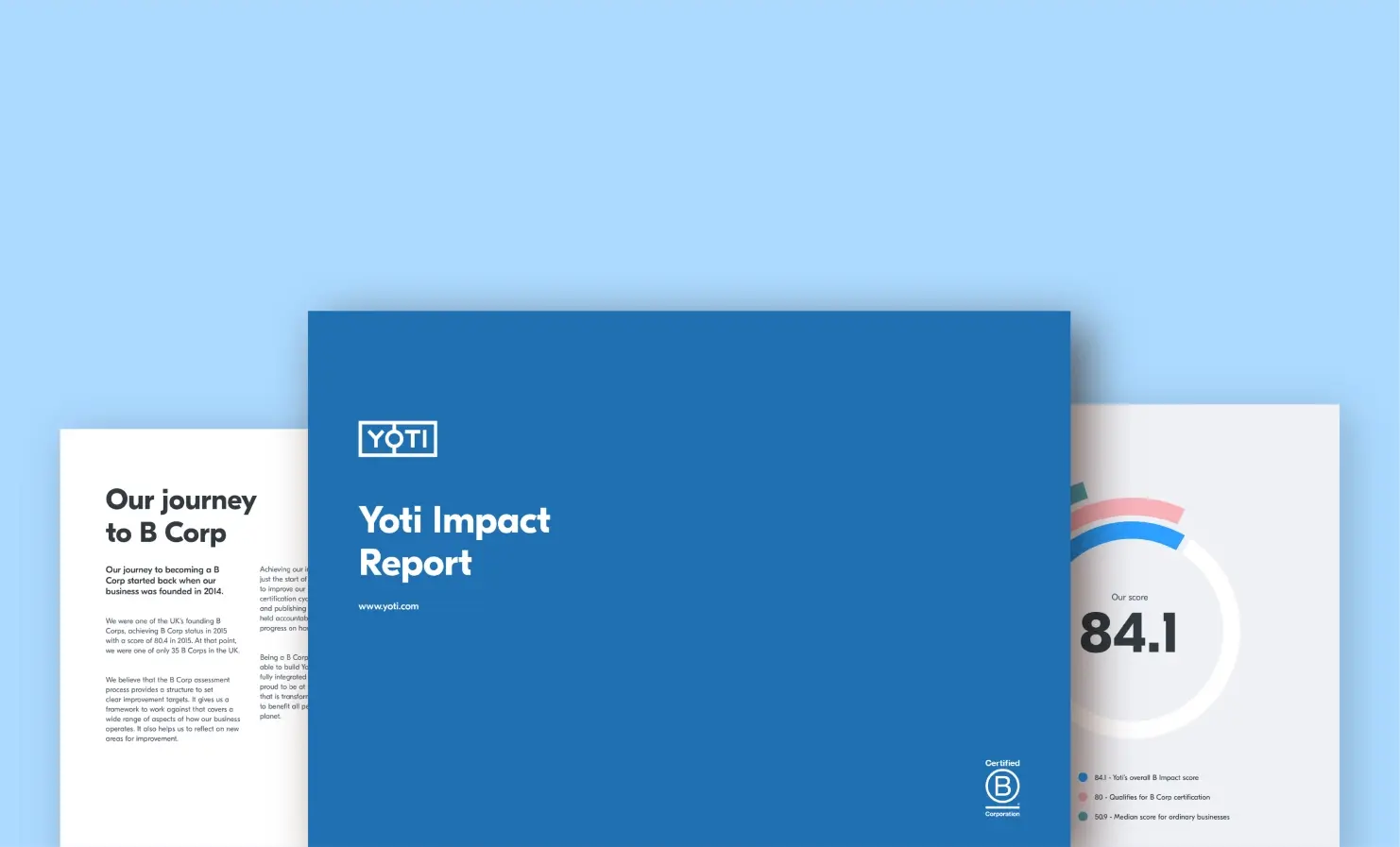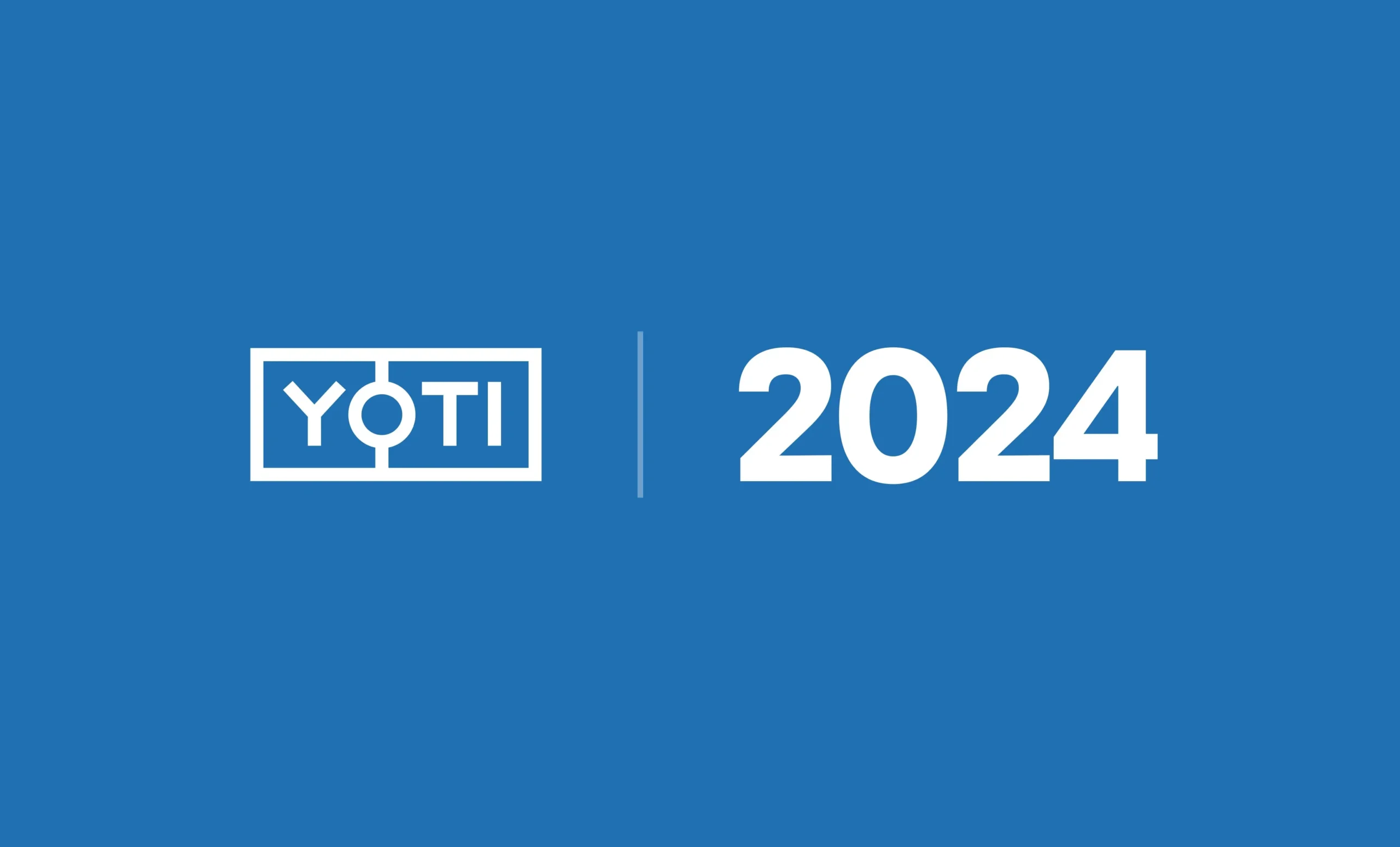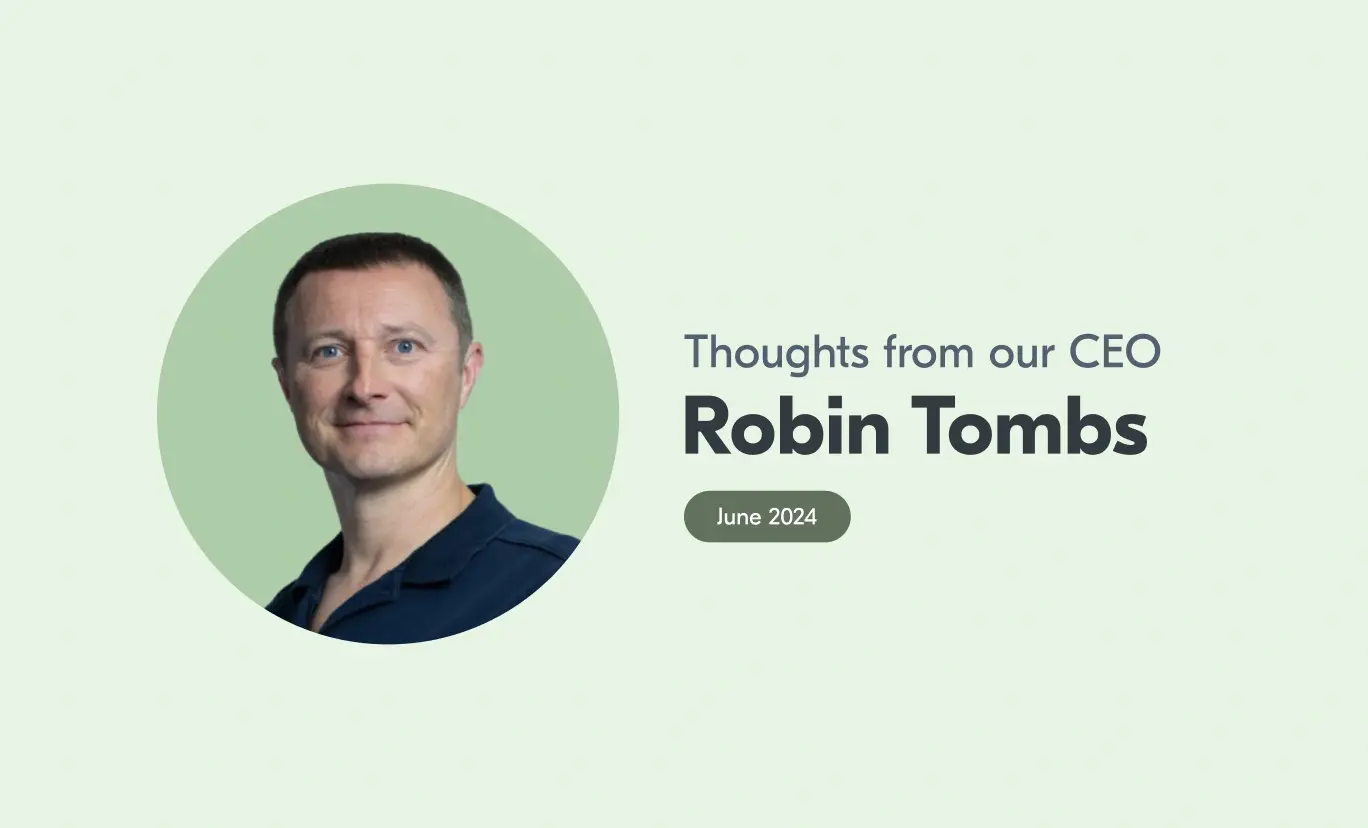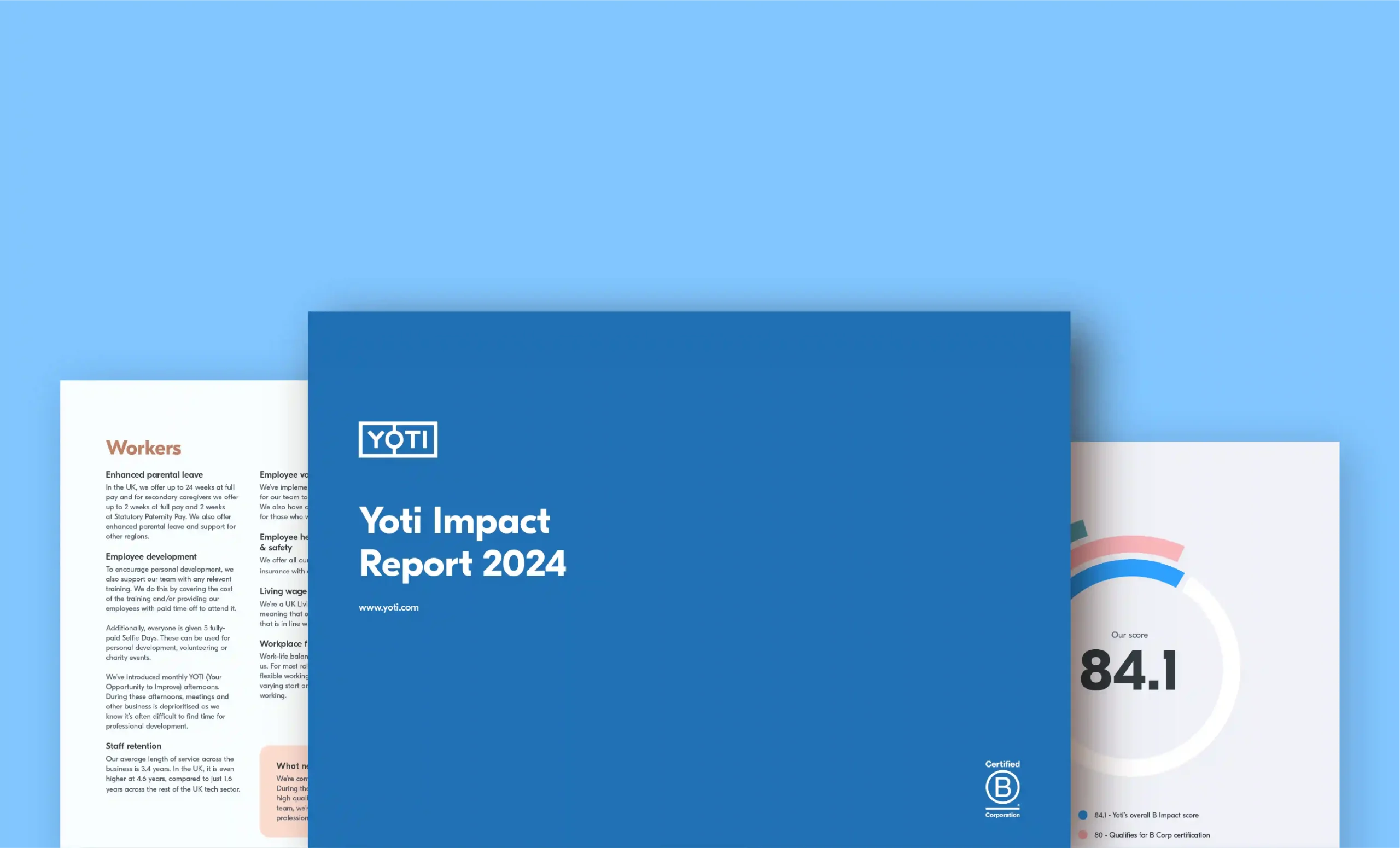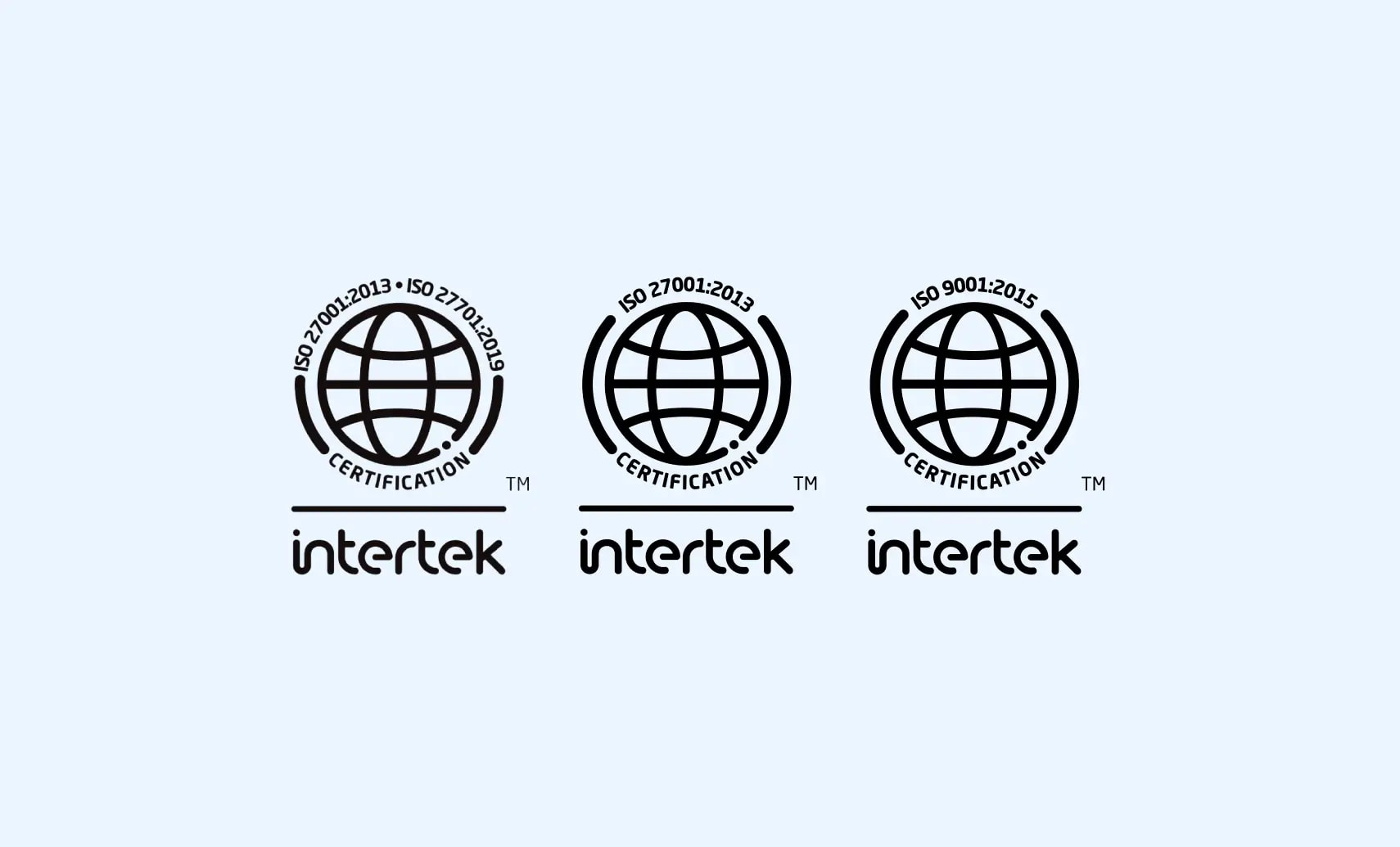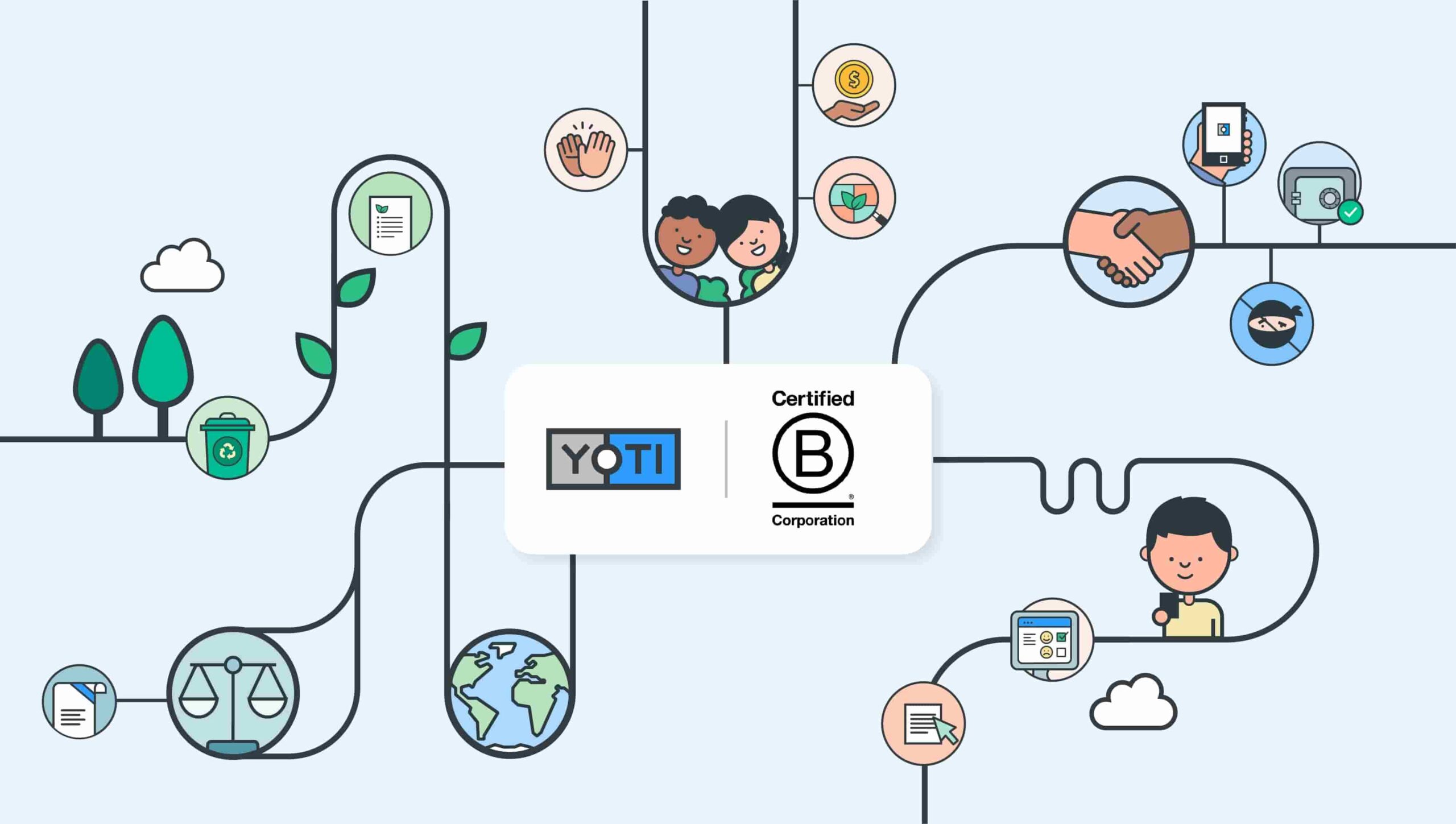Company
Discover Yoti's B Corp Impact Report
We’ve reached a full decade of being a B Corp! At Yoti, we believe technology has the power to create a safer, fairer and more trusted world. But as the world of technology evolves, we know we must remain mindful of how we do business. As part of our commitment to balancing profit and purpose, we’re thrilled to announce the release of our new B Corp Impact Report. It highlights our progress and impact in the areas that matter most to our stakeholders, our community and the planet. Highlights include: Improving the accessibility requirements of
A look back on 2024
It’s been another busy year for the age and identity industry. A raft of new online safety legislation has been introduced around the world, digital IDs gained momentum, and the accuracy of facial age estimation continued to improve. It’s also been a really positive year for Yoti. We were named by Deloitte as one of the UK’s fastest-growing technology companies, recertified as a B Corp, and announced some exciting new product features. Here’s a look back on what’s been going on over the last 12 months. Digital IDs gained momentum It’s been great to see the new Data
Thoughts from our CEO
In this blog series, our CEO Robin Tombs will be sharing his experience, whilst focusing on major themes, news and issues in the world of identity verification and age assurance. There’s been a lot about facial age estimation this month, with Robin talking about its use by Meta in Australia as well as our facial age estimation demo site. He also chats about Yoti’s NIST assessment and how Digital IDs can be used to combat fraud. Meta introduces facial age estimation in Australia We’re delighted Meta is rolling out Yoti’s facial age estimation on Facebook, starting in Australia.
Say hello to our 2024 B Corp Impact Report
We’re delighted to reach our ninth year of being a B Corp. When Yoti was founded 10 years ago, we knew that we wanted to do business the right way. Because that’s the only way we can truly make the digital world safer for everyone. Our founders knew that in this industry, we were going to come up against some complex ethical questions. Working with identity, personal data and biometrics is a delicate matter. And that’s one of the reasons we became a B Corp – to hold us accountable to all our stakeholders including our people, clients, suppliers, the
Prioritising privacy and security: Yoti's commitment to meeting ISO standards
We’re committed to protecting the privacy and security of our users. That’s why we’re thrilled to announce that we have recently been certified to meet ISO 9001 and ISO 27701 standards. This is a huge achievement for us as it confirms that our quality management system and data protection policies and procedures meet international standards. These sit alongside ISO 27001 which we’ve met since 2015. What are ISO standards? The International Standards Organisation (ISO) is an independent body made up of industry experts from around the world. They’ve created a series of standards which cover almost all aspects
We're officially recertified as a B Corp!
What’s a B Corp? B Corporations (or B Corps) are leaders in the global movement for an inclusive, equitable, and regenerative economy. The ‘B’ in B Corp stands for ‘benefit’. As such, B Corps must continually seek out ways to benefit all people, communities and the planet. B Corps work to transform the way that business is done. Instead of focusing solely on making money, B Corps look to balance profit with purpose. When did it all begin? Our journey to becoming a B Corp started back when our business was formed in 2014. We achieved B Corp

